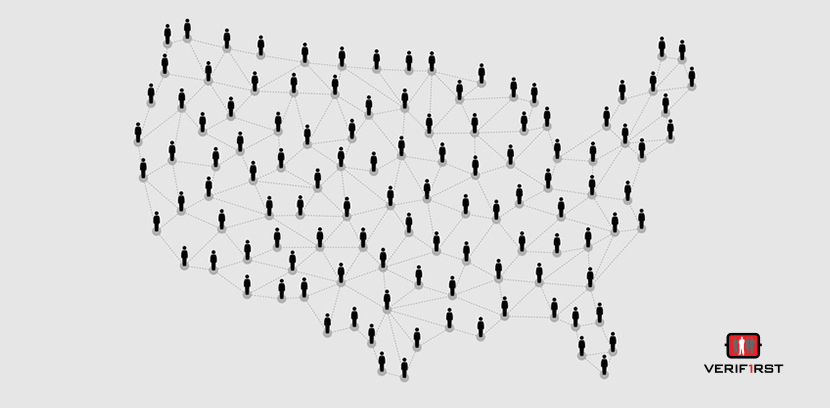Ghosting in the Workplace

Have you ever hired the perfect employee for a job posting and they never show up for their first day? You, my friend, have been "ghosted". No, that doesn't mean your workplace is haunted. The term originated in the dating world when a romantic interest suddenly goes silent. It has unfortunately taken on a life of its own, trending in the world of human resources.
Much like spirits in the material world, ghosting has no place in employment. Here's why it happens.
Examples of Employee Ghosting
Employees don't just disappear at the start of their new job. The trend happens in many ways in the workplace. Here are some examples of employee ghosting:
Applicants ghosting:
- Job applicants don't show up for interviews and stop responding to communication.
- The candidate makes it through the interview process and never responds to the job offer.
- The job offer is accepted but the employee doesn't show up for work.
Employee ghosting:
- Current employee finds another job and, instead of handing in notice, stops coming to work.
- Employee walks out during the work day, maybe during lunch, and never returns to work.
- Employee's absence isn't noted at work, especially in large employers, but they're still receiving a paycheck.
Job seekers may also ghost recruiters if they feel the jobs aren't relevant to their search or if the recruiter is difficult to work with.
Examples of Employer Ghosting
It's not only job-seekers and employees that disappear without a trace. Many applicants loathe the silence after interviewing for a job. The phrase, "We'll get back to you," is uttered without a thought but applicants take it to heart. Will they actually hear back from the hiring manager?
Maybe the applicant isn't a good fit. Maybe the employer changed their mind about hiring for that specific role. Maybe a current employee moved into the role or a better candidate surfaced. Employers may not realize that applicants can share their candidate experience - ghosting stories, scary interviews, or other recruiting nightmares - through online employer review sites such as Glassdoor and on social media. Employers who use social media for recruiting may find it more difficult. If the candidate has been contacted or interviewed by an employer, that candidate now has a stake in the hiring process and would love feedback.
For instance, Jane Ashen Turkewitz wrote an example email to send to employers who "ghost" job applicants. The post, shared here on LinkedIn, has been shared thousands of times, has nearly 2,000 likes and over 300 comments. Obviously, this is a sore subject for job-seekers.
Why Ghosting Happens
There are a number of reasons for ghosting in the workplace. On the employee or applicant side, a bad workplace culture, workplace bully, or difficult management may cause an employee to get out as quickly as they can. A more lucrative job offer may require the employee to go to work immediately, thus leaving them no time to put in notice. It could also be a sign of the times, with younger candidates afraid of speaking up or confrontation, or simply feeling as if it wouldn't matter to the employer who may have other applicants vying for the position.
Job applicants may not hear back from recruiters or employers for many reasons including hiring someone internally or otherwise filling the role. The recruiter may have left the company and no one is available to follow up. Maybe the HR department is overwhelmed with responses or hiring responsibilities and a feedback notification just isn't a part of their employment process.
Be a Ghost(ing)buster
As an employer, set an example. Follow-up with job-seekers as much as possible. Give a timeline of when you expect to fill the position. Notify them if you've filled the role would like to keep their application on file. Create a workplace culture of transparency and communication. Remember to follow-up especially if you've already screened a candidate. They must be notified that their background information will be used to make a decision and they must be given notice to respond or dispute any negative results through adverse action.
As a candidate, follow up with recruiter or hiring manager, especially after an interview. If you don't hear anything within a few weeks, reach out again. Pick up the phone, if necessary. Ask for timelines or, when interviewing, ask if you can follow up in a week or so. If you've received no response and you believe you don't have the job, ask for constructive feedback with the understanding that the role has been filled. This valuable information may help you land the perfect job after all.
If you're looking to make connections or additions to your professional network, don't be a ghost. Don't arrange an introduction and not follow thru. Don't ask someone to set aside time and not show up. Most importantly, if you do find yourself in front of someone, do your homework, learn about them, ask questions. Networking is more than "what can you do for me."
Communication goes far in resolving ghosting situations. If you're the ghost, acknowledge, apologize, and do better. The disappearing act isn't helpful or professional on either side of the hiring desk.
Share this
You May Also Like
These Related Stories

Employee Background Checks Reveal Ghosts From Their Past 👻

New State Employment Laws for 2018

